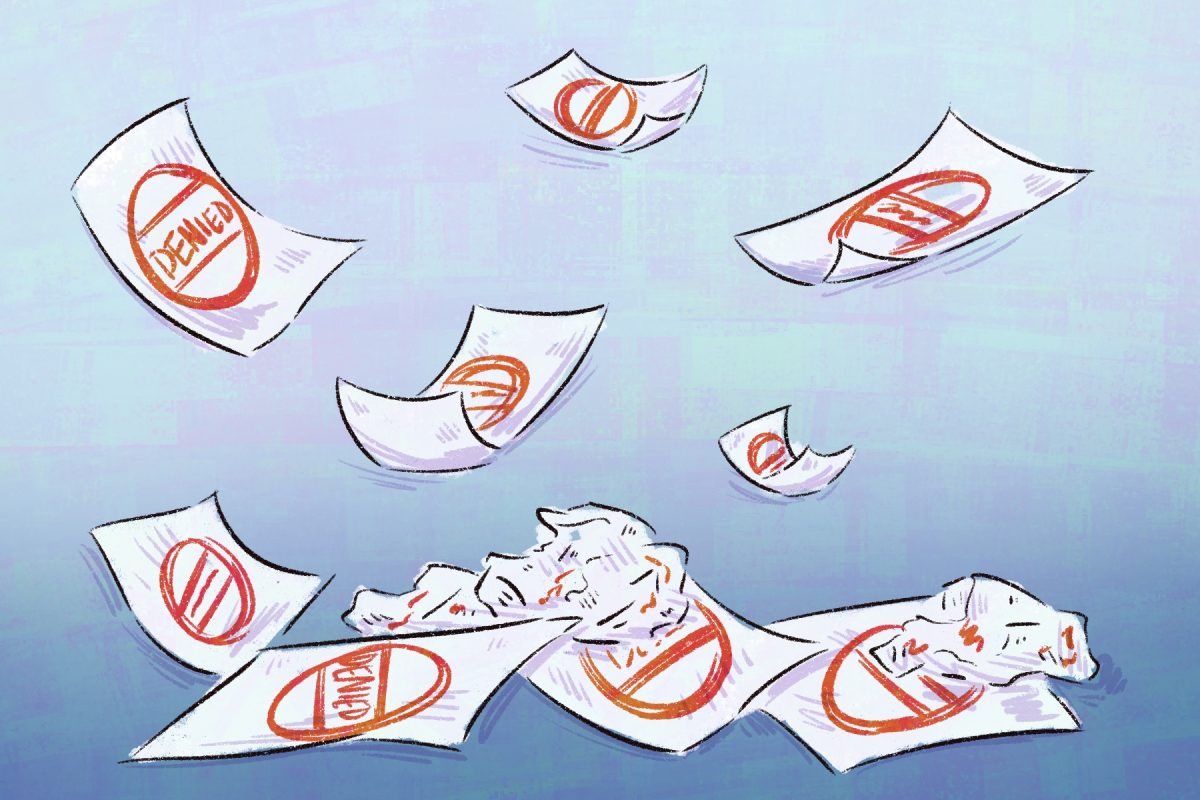For some students, finding internships, co-ops and full-time employment after graduation can be a daunting task. A competitive job market has caused concerns among upperclassmen who have become fearful for life after college.
The University offers campus resources like the Career Center, several career fairs throughout the year and access to major-specific career development through offices such as the Engineering Career Development Center. While these resources offer students guidance in their search for employment, some students have applied to many positions and have heard no response.
“The Career Center was helpful with co-ops — with internships, not so much,” said Priyanshu Sethi, a sophomore majoring in computer science.
Sethi went on to voice his efforts in finding an internship position by himself. He explained that finding opportunities has been difficult for him.
“There’s so many resources out there, so it’s kind of hard to figure out what’s the correct one. You could be applying on Handshake, you could be applying on LinkedIn, and some companies only post on a certain platform,” Sethi said.
However, the difficulties do not end once a student learns of an internship or employment opportunity. Students may also have trouble in meeting the academic or extracurricular requirements of a position.
Dale Harris, a sophomore majoring in mechanical engineering, said that when he was searching for internships, the hardest part was making sure he was qualified for them. Harris expressed concern about companies accepting applications from students who do not meet requirements like a minimum grade point average.
“A lot of them will say, ‘Oh, you can apply anyway,’ but I get the feeling they may not even look,” Harris said.
Sethi said in his search for a co-op or internship, has applied to 235 positions. Keeping his applications organized has become extremely important in minimizing stress levels. However, he has found that applying to so many places has limited his ability to reach out directly to the companies he applied to.
“When I was applying for internships, I maintained a spreadsheet of all of them,” Sethi said. “If you keep applying, at some point it kind of gets hard to respond to all the emails you get. The Career Center recommends cold reaching out to companies, but when you’re applying to 200 positions, that’s not really feasible.”
Harris had a similar experience applying for numerous positions.
“I’ve lost count of all the applications I’ve sent in to different places,” Harris said.
Sethi said that out of the 235 internships he has applied to, he hasn’t heard back from 166, adding that filling out applications can lead to worry and anxiety when applicants don’t hear back.
“I wonder as I’m filling out an application if I’m going to hear anything or how far it will go. I do think it makes me a little cynical if I don’t even hear anything back,” Harris said.
According to a 2024 report from Handshake, a career search platform for students, 57% of surveyed class of 2025 students felt pessimistic about starting their careers, with 63% of those same students identifying the competitiveness of the current job market as a source of their negative outlook.
While he is an underclassman himself, Sethi said that he knows some upperclassmen who are fearful for life after graduation.
“I’ve seen a lot of seniors who are about to graduate and still don’t have job offers and are looking for jobs — it affects them a lot. The only thing you can think about is applying for jobs and ‘What’s after college?’ That’s the major breaking point,” Sethi said.
According to the same Handshake report, job availability has decreased since 2020. For this reason, some students view graduation as a cause for concern rather than celebration.
Harris explained that while he is still looking forward to graduation, he is worried about what will come after.
“If I’ll get a job or even an internship lined up — that does weigh on me a good bit,” Harris said.
Some college students, like Sethi, may feel that their efforts to earn their college diploma are useless if they do not find a full-time position after graduation. Maintaining a good GPA, joining clubs, serving in the local community and more — students may go through all of these efforts just to hear nothing back from the company they applied to.
Out of the 235 internship positions he applied to, Sethi ultimately received just one offer.
“What if I don’t find a job after graduation? Then all of this, all four years of hard work, is not worth it,” he said.









